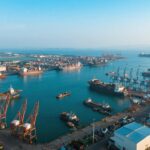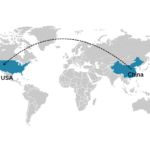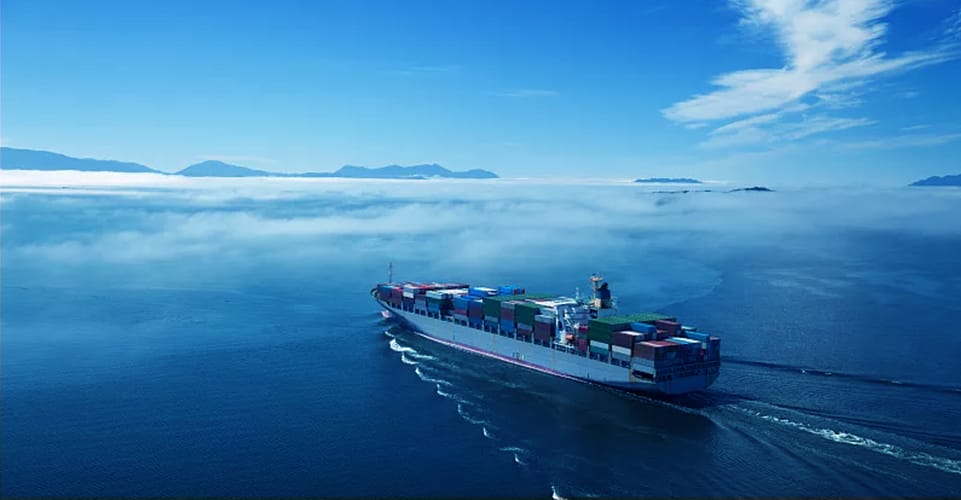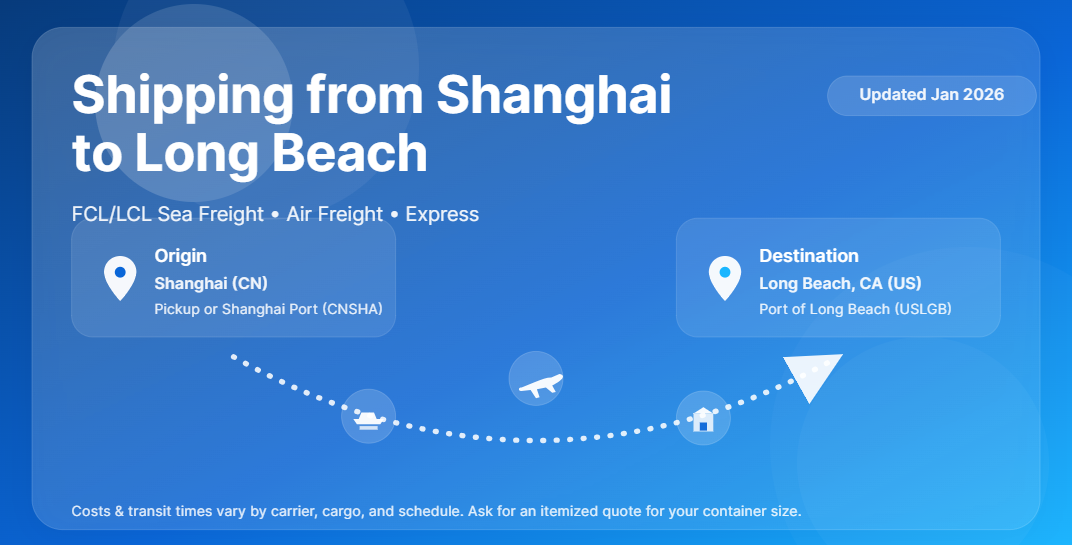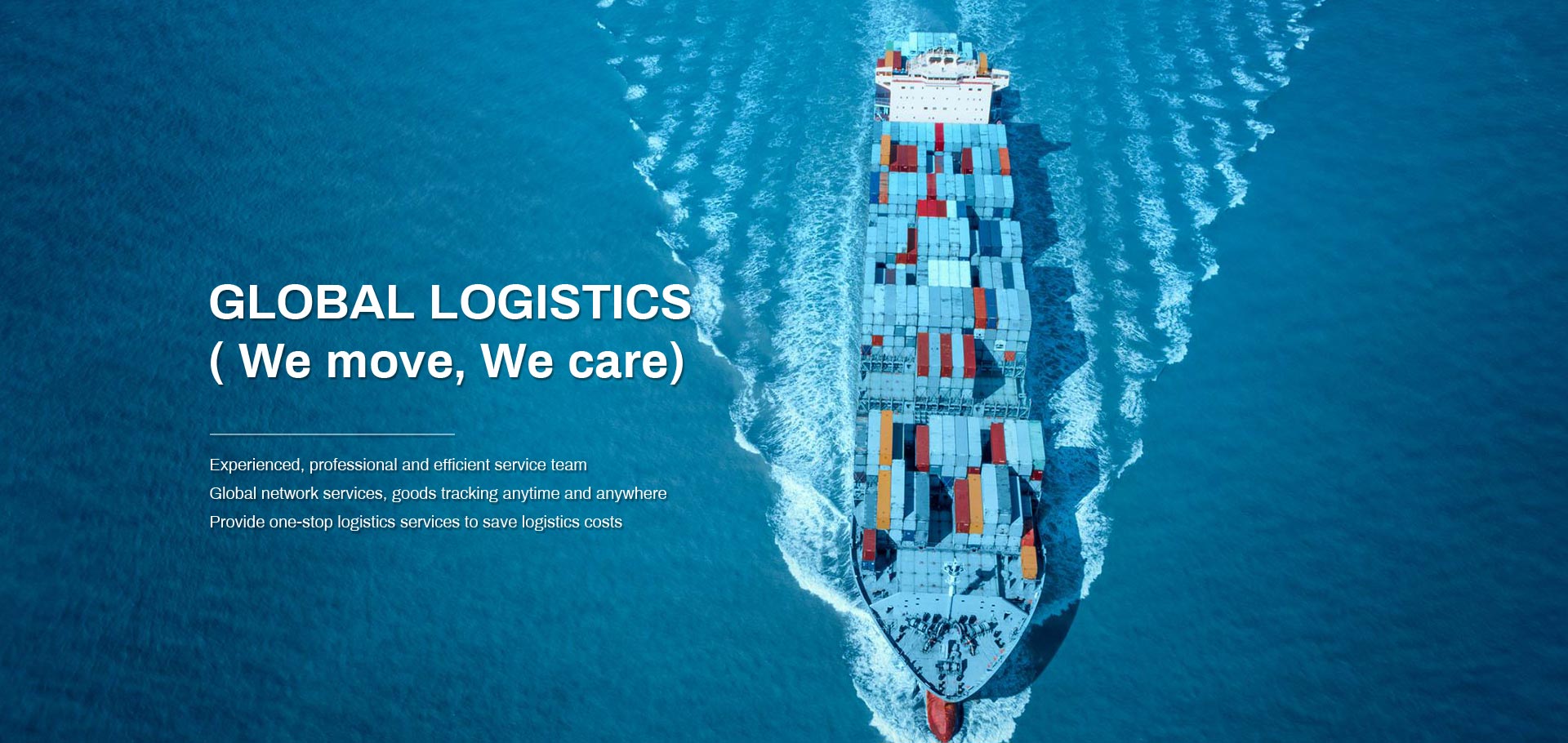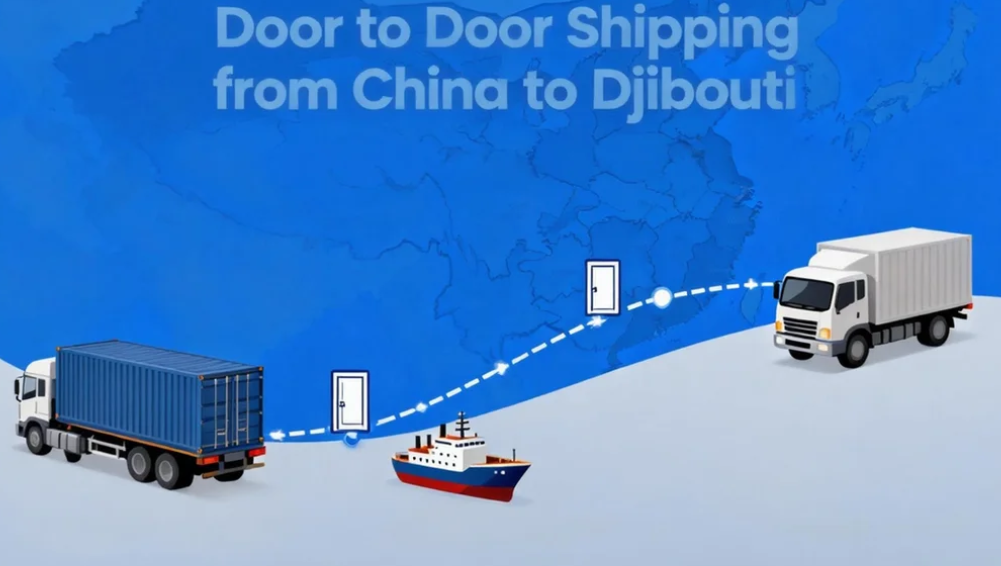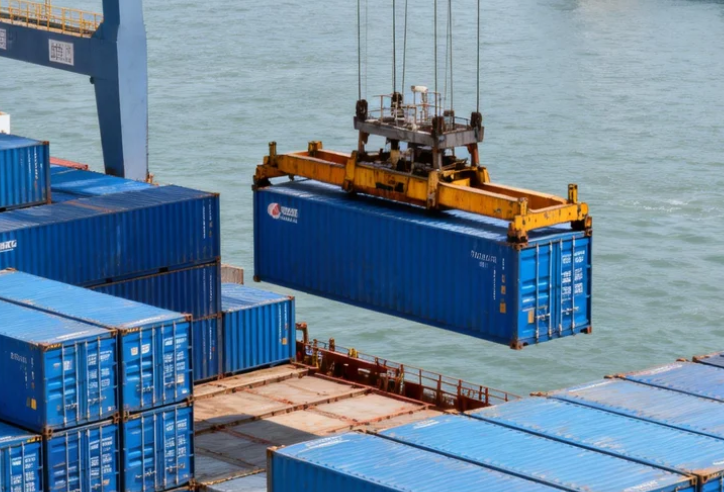Are you looking to navigate the complexities of container freight from China to the USA?
In this article, we will unravel the essential aspects of container shipping, highlighting its crucial role in global trade. In this comprehensive guide, we will explore the various types of containers, key shipping routes, and factors influencing freight rates. Additionally, we’ll discuss how to choose the right freight forwarder and overcome common challenges. Get ready to streamline your shipping process and make informed decisions for your business!
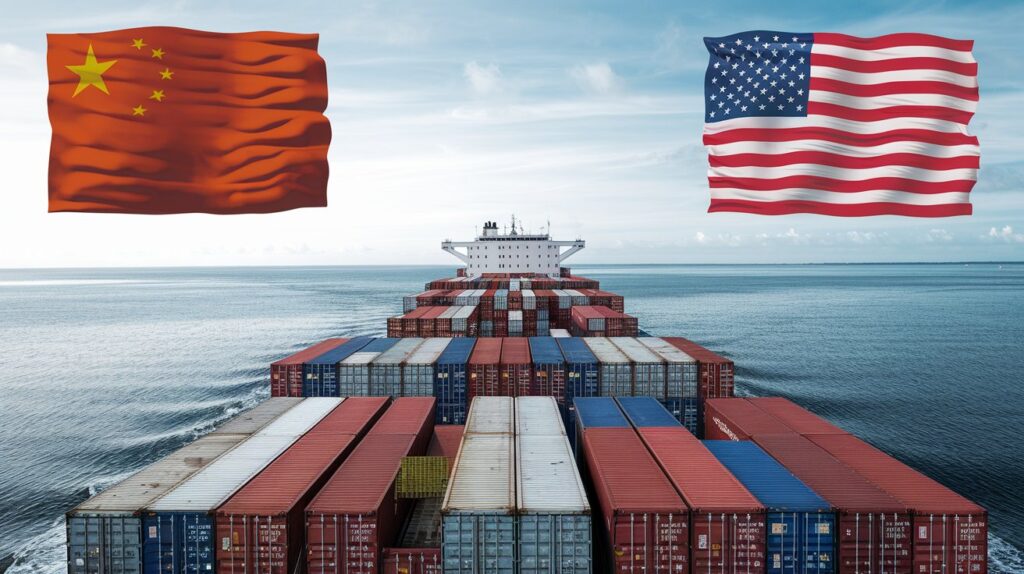
Table of Contents
Understanding Container Freight from China to the USA
Overview of Container Shipping
Container shipping is a vital segment of international logistics, primarily involving the transportation of goods in standardized containers. This method has revolutionized global trade as it enables efficient loading, unloading, and storage of cargo, reducing shipping times and costs. In recent years, the global container shipping market has witnessed significant growth, driven by increasing demand for imported goods, particularly from China to the USA. According to the World Trade Organization (WTO), containerized shipping accounts for approximately 60% of the total volume of global trade.
The advent of intermodal transportation, which allows seamless transfer of containers across different modes of transport (such as ships, trucks, and trains), has further enhanced the efficiency of container shipping. This means that goods can be transported from factories in China to the retail shelves in the USA with minimal delays and reduced risk of damage.
Importance of Container Freight in Global Trade
Container freight plays a crucial role in the global economy, enabling countries to trade goods efficiently and effectively. For businesses looking to import products from China to the USA, understanding the implications of container freight is essential. Here are some key reasons why container freight is important in global trade:
- Cost Efficiency: Shipping goods in containers significantly reduces transportation costs per unit, making it economically viable for businesses to import goods in bulk. The cost of shipping can be optimized through containerization.
- Security and Safety: Containers provide a secure environment for transporting goods, minimizing the risk of theft and damage. According to the International Maritime Organization (IMO), about 80% of global trade by volume is carried by sea, emphasizing the importance of secure shipping methods.
- Environmentally Friendly: Container shipping is one of the most environmentally friendly options available for transporting goods. It produces fewer carbon emissions per ton of cargo compared to other forms of transportation, primarily due to the economies of scale in shipping large quantities of goods at once.
- Standardization: The standard sizes of containers (like 20ft and 40ft) facilitate easy handling, reducing loading and unloading times at ports. This standardization also simplifies documentation and customs clearance processes.
- Flexibility: Container freight offers flexibility in terms of shipping schedules and routes, enabling businesses to adapt quickly to changes in demand or supply chain dynamics. Companies can benefit from services like LCL vs FCL Shipping to optimize their logistics.
In summary, understanding container freight from China to the USA is essential for importers aiming to enhance their supply chain efficiency and cost-effectiveness. By leveraging the advantages of containerized shipping, businesses can position themselves competitively in the global marketplace.
Types of Containers for Shipping from China
20ft Containers from China to the USA
20ft containers, also known as TEUs (Twenty-foot Equivalent Units), are one of the most commonly used containers in international shipping. They are ideal for smaller shipments and can carry approximately 10-12 tons of cargo. Some advantages of using 20ft containers include:
- Cost-Effectiveness: Shipping smaller quantities in a 20ft container may be more economical for businesses that do not need to fill a larger container.
- Versatility: These containers can accommodate a wide variety of goods, from electronics to textiles, making them suitable for diverse industries.
- Easier Handling: The smaller size allows for easier handling and maneuverability at ports, which can lead to faster loading and unloading times.
40ft Containers from China to the USA
40ft containers, or FEUs (Forty-foot Equivalent Units), are another popular choice for international shipping. They offer greater capacity, typically able to carry around 20-28 tons of cargo. Benefits of using 40ft containers include:
- Increased Capacity: More significant shipping volume means reduced costs per unit for businesses with larger shipments.
- Maximized Efficiency: Companies can benefit from economies of scale by shipping more products at once, lowering overall freight costs.
- Specialized Options: 40ft containers can also come in specialized types, such as refrigerated containers for perishable goods, providing solutions for various shipping needs.
In choosing between 20ft and 40ft containers, businesses should consider factors such as shipment volume, type of goods, and budget constraints. Working with a reliable freight forwarder like Dantful International Logistics can help streamline this decision-making process and ensure you choose the most appropriate container type for your needs.
Key Shipping Routes from China to the USA
Major Ports of Departure in China
When engaging in container freight from China to the USA, it is essential to understand the primary ports of departure. Below is a list of some of the most significant ports in China known for facilitating international shipping:
| Port Name | Location | Key Features |
|---|---|---|
| Shanghai | Eastern China | The busiest container port globally, excellent connectivity. |
| Shenzhen | Southern China | Home to several major logistics companies, diverse shipping options. Shipping from Shenzhen to USA |
| Ningbo | Eastern China | Strategically located, second-largest port in China by cargo volume. Ningbo ocean port to USA |
| Guangzhou | Southern China | Significant industrial hub, offers efficient shipping services. Shipping from Guangzhou to USA |
| Hong Kong | Southern China | Major global financial center, flexible shipping schedules. |
| Tianjin | Northern China | Proximity to Beijing, a critical port for northern regions. |
These ports play a crucial role in ensuring that goods move efficiently from manufacturers in China to consumers and businesses in the United States. Each port has its unique advantages, so choosing the right port can impact both cost and shipping time.
Key Arrival Ports in the USA
Upon reaching the United States, containers are typically delivered to one of the major arrival ports. Here are some of the key ports in the USA that receive container shipments from China:
| Port Name | Location | Key Features |
|---|---|---|
| Los Angeles | California | The busiest port in the USA, vital for trans-Pacific trade. biggest ports in the us |
| Long Beach | California | Adjacent to Los Angeles, often handles overflow cargo. |
| New York/New Jersey | Northeastern USA | A critical entry point for international trade on the East Coast. |
| Seattle | Washington | Major port for goods entering the Pacific Northwest. |
| Savannah | Georgia | Known for its efficient processing and quick turnaround times. |
| Houston | Texas | A significant hub for energy and industrial goods. Shipping from China to Houston |
Understanding both the departure and arrival ports is vital for planning logistics and ensuring smooth transit of goods.
Factors Influencing Container Freight Rates
Key Cost Components of Shipping Containers
Several factors contribute to the overall costs of container shipping from China to the USA. The following table outlines the key components influencing freight rates:
| Cost Component | Description |
|---|---|
| Freight Charges | Base cost for transporting goods via sea, which can vary by carrier. |
| Port Fees | Charges for handling containers at loading and unloading ports. |
| Customs Duties | Taxes imposed on imported goods, varying by product type. |
| Insurance | Coverage for loss or damage during transit, often recommended. |
| Fuel Surcharges | Additional fees based on fluctuations in fuel prices. |
| Container Handling Fees | Charges for loading and unloading containers at terminals. |
Understanding these components helps businesses accurately estimate their shipping costs and budget accordingly.
Seasonal Trends Affecting Freight Costs
The costs of container freight are also influenced by seasonal trends. Here are some key factors to consider:
- Peak Shipping Seasons: Typically, the months leading up to major holidays (such as Christmas) see a surge in demand for shipping services, which can drive up prices due to congestion.
- Off-Peak Discounts: Conversely, shipping during off-peak times may yield lower rates as demand decreases.
- Global Economic Conditions: Economic fluctuations can influence shipping costs, as demand for goods can vary based on consumer spending trends.
- Environmental Regulations: New regulations can impact operational costs for shipping companies, which may be passed on to customers in the form of increased freight rates.
- Natural Events: Events such as typhoons or other natural disasters in China or along shipping routes can disrupt services and lead to price hikes.
By being aware of these seasonal trends and factors, businesses can make informed decisions about when to ship their goods and how to manage costs effectively.
In conclusion, understanding the key shipping routes and the factors influencing freight rates is essential for businesses looking to import goods from China to the USA. Partnering with a reliable freight forwarder, such as Dantful International Logistics, can provide guidance and support in navigating these complexities, ensuring a cost-effective and efficient shipping process. With services that include Ocean Freight, Air Freight, Warehouse, and Customs Clearance, we are committed to offering a comprehensive solution for your international logistics needs.
Choosing the Right Freight Forwarder for Your Shipment
Importance of Freight Forwarders in International Shipping
When it comes to international shipping, partnering with a qualified freight forwarder is crucial. A freight forwarder acts as an intermediary between the shipper and various transportation services, ensuring that your goods are transported efficiently and reliably from China to the USA. Their expertise in navigating complex logistics, customs clearance, and documentation helps to streamline the shipping process, which can otherwise be daunting for many businesses.
In particular, a professional freight forwarder can provide the following advantages:
- Expertise and Experience: Freight forwarders have in-depth knowledge of shipping regulations, customs procedures, and international trade. This expertise reduces the risk of shipping delays and compliance issues.
- Cost-Effectiveness: By consolidating shipments and negotiating better rates with carriers, freight forwarders can often save you money compared to handling shipping logistics on your own.
- Time Efficiency: With established relationships in the industry, freight forwarders can expedite processes that may otherwise take significant time if managed independently.
- Risk Management: Freight forwarders are adept at identifying potential risks associated with shipping, helping you to mitigate those risks through proper insurance coverage and contingency planning.
How to Find a Reliable Freight Forwarder
Selecting a reliable freight forwarder is essential for a seamless shipping experience. Here are some key steps to consider when choosing a freight forwarder for your shipment from China to the USA:
- Research and Recommendations: Start by researching freight forwarders that specialize in China to USA shipping. Look for reviews and testimonials from other customers. You can also seek recommendations from business associates or trade organizations.
- Verify Credentials: Ensure that the freight forwarder has valid licenses and certifications, such as the Federal Maritime Commission (FMC) license for U.S. shipments. Membership in organizations like the International Federation of Freight Forwarders Associations (FIATA) can also indicate credibility.
- Evaluate Services Offered: Different freight forwarders may offer various services, including customs clearance, door-to-door delivery, and cargo insurance. Ensure that the services align with your specific shipping needs.
- Request Quotes: Obtain quotes from several freight forwarders to compare costs and services. Be wary of extremely low quotes, as they may indicate compromised service quality.
- Assess Communication and Support: A reliable freight forwarder should provide excellent communication channels. Assess their responsiveness and willingness to address your queries during the initial contact.
Common Challenges in Container Shipping from China
Addressing Delays in Container Transportation
Delays in container transportation can occur due to various factors, including port congestion, customs inspections, and weather conditions. These delays can significantly impact delivery schedules and customer satisfaction. To address potential delays effectively:
- Plan Ahead: Allow ample time for your shipments, especially during peak seasons like the Chinese New Year, when shipping demand surges.
- Stay Informed: Regularly communicate with your freight forwarder to stay updated on the status of your shipment and any potential delays.
- Utilize Technology: Employ tracking systems that allow you to monitor your shipment’s progress in real-time, enabling proactive decision-making if delays arise.
Managing Risks and Issues in Container Shipping
Shipping containers come with inherent risks, ranging from damage to loss of cargo. To manage these risks effectively, consider the following strategies:
- Invest in Cargo Insurance: Ensure that your shipment is adequately insured against potential loss or damage. Consult with your freight forwarder about the best insurance options available.
- Conduct Thorough Pre-Shipment Inspections: Before shipping, inspect your goods to ensure they meet packaging and quality standards. Properly packed goods are less likely to incur damage during transit.
- Establish Clear Communication Protocols: Maintain open lines of communication with your freight forwarder to address any unexpected issues promptly.
Tips for Successful Container Shipping from China
Best Practices for Preparing Your Goods for Shipping
Preparing your goods for shipping is vital to ensure a smooth process. Here are some best practices:
- Choose the Right Packaging: Select appropriate packaging materials that can withstand the rigors of international shipping.
- Label Clearly: Ensure that all packages are clearly labeled with destination address, handling instructions, and other relevant information.
- Document Everything: Keep detailed records of all shipping documents, including invoices, packing lists, and customs declarations.
How to Ensure Compliance with US Import Regulations
Compliance with U.S. import regulations is critical to avoid fines and delays. Here are some steps to ensure compliance:
- Understand Import Regulations: Familiarize yourself with U.S. customs regulations applicable to your goods. The U.S. Customs and Border Protection (CBP) website offers valuable information.
- Work with Your Freight Forwarder: Leverage the expertise of your freight forwarder to ensure that all necessary documentation is prepared correctly and filed on time.
- Classify Your Goods: Ensure your goods are properly classified according to the Harmonized Tariff Schedule (HTS) to determine the correct duty rates.
By employing these strategies, you can significantly enhance your container shipping experience from China to the USA. For a seamless shipping process, consider partnering with Dantful International Logistics, a highly professional, cost-effective, and high-quality one-stop international logistics service provider. We offer a range of services, including ocean freight, air freight, customs clearance, and more, tailored to meet your specific logistics needs.

Young Chiu is a seasoned logistics expert with over 15 years of experience in international freight forwarding and supply chain management. As CEO of Dantful International Logistics, Young is dedicated to providing valuable insights and practical advice to businesses navigating the complexities of global shipping.


